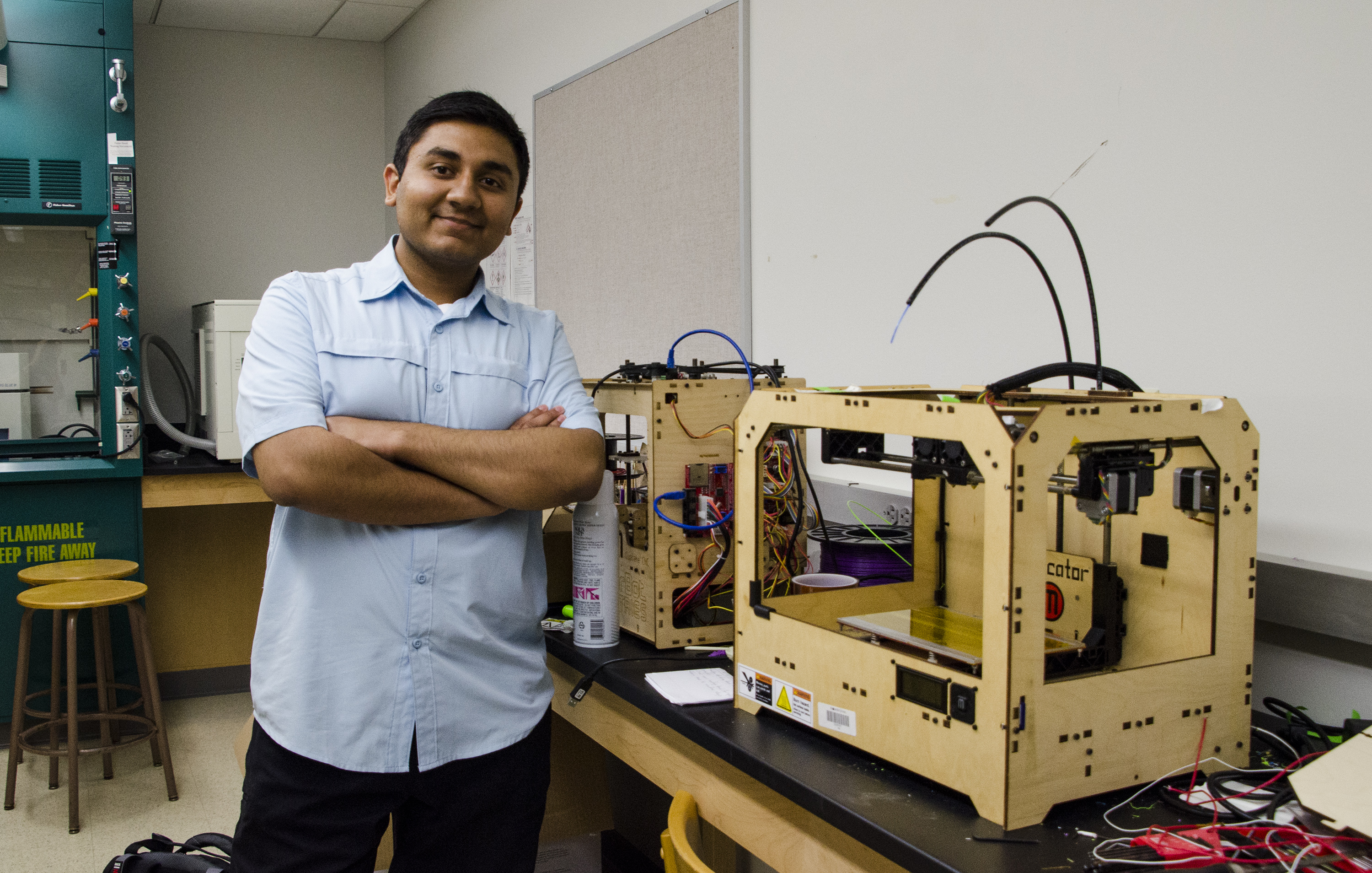President and founder of LEA Hari Kalsi.
By David Baldwin.
On Wednesday, May 16, a new student organization met for the last time this year in the Runkel Room on the fourth floor of the Warch Campus Center. Among the topics discussed at the meeting were how new technology is developed, the economics of medicine and research and the ethical, economic and societal ramifications of keeping people alive for a very long time.
Life Extension Advocacy (LEA) is an organization that not only works to prolong life, but also tries to extend the length of a person’s life that they are healthy for, their “healthspan.” The idea behind this mission is that most medical problems are caused by the breakdown over time of various body systems.
If we can understand those processes and slow or stop them, then we can potentially have people not only live for vastly longer periods of time,but they can be active members of society for much more of that time. This may sound like science fiction, but for Lawrence freshman Hari Kalsi, the founder and President of LEA, it is very real.
“The current way that we’re dealing with aging from a medical perspective is that we create drugs and therapies that try to stop the damage of aging like statins and cholesterol, but the issue is they don’t actually repair the damage from aging,” he said, citing statistics on the large number of people who die every day from aging-related illnesses, which account for about 2 in 3 deaths every day. “With regenerative medicine, we not only stop the damage from the aging process but we also help repair it.”
Regenerative medicine is a branch of translational medicine, or medicine that is based on the translation of genetic information into functional proteins that the body needs. Regenerative medicine focuses on using translational medicine and molecular biology techniques for the repair and rebuilding of those body systems that break down with aging.
This kind of technology is also one of the main kinds of advancements that LEA and their affiliated organizations the Life Extension Advocacy Foundation (LEAF) and the Strategies for Engineering Negligible Senescence Research Foundation (SENS) work towards and advocate for.
Kalsi points to several technologies in this area that are showing tremendous promise in clinical trials on humans. One such technology is a new class of drugs called senolytics that remove dead cells from the body that the immune system doesn’t dispose of efficiently as we age.
“Their presence causes many problems, including impairing tissue repair and increasing inflammation, and is linked with the progression of osteoarthritis, atherosclerosis, cancer and other age-related diseases,” says the Life Extension Advocacy Foundation on their website, leafscience.org.
According to Kalsi, many therapies like these are not well funded by the pharmaceutical industry because of increased risk, so LEA and LEAF try to build partnerships with venture capitalists in order to provide the necessary resources.
In addition to promoting research into new technology and therapies, LEA also tries to combat ageism and the idea that there’s nothing we can do about aging.
“There’s a lot of different forms of ageism. One of those is where doctors and nurses will just be like, ‘This is a totally natural part of aging for you to have a wound that will never close. That’s just something that’s a part of aging, and we’re not going to spend time addressing that. Instead we’re going to give you something to try and make your life more comfortable.’ That’s really not an efficient approach, that’s not an ethical approach and that’s not something that we want to do in the future,” Kalsi said.
These new kinds of technologies around aging can often raise the question of whether or not it is ethical to have the ability to live forever given the current problems of overpopulation, as well as how therapies could be used and how they might impact society. LEA does their best to address these questions too.
“LEAF has an entire section of their organization devoted to addressing these potentially ethically problematic issues,” Kalsi said, “We do not shy away from [the consequences of extending life], and we are sure to address that.” He also pointed to articles and resources on the LEAF website, leafscience.org, that discuss these issues.
For anyone interested in getting involved with LEA, they are done with meetings for this year, but students are welcome to email Hari Kalsi to find out about opportunities in the future, including some opportunities to get involved over the summer.

